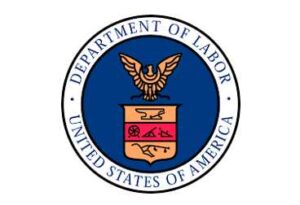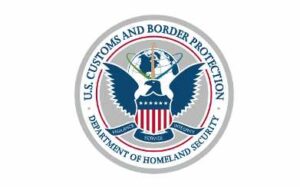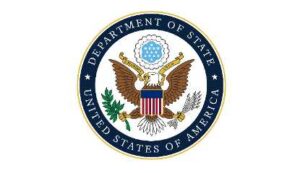This sponsored column is by Law Office of James Montana PLLC. All questions about it should be directed to James Montana, Esq., Doran Shemin, Esq., Janice Chen, Esq., and Austen Soare, Esq., practicing attorneys at The Law Office of James Montana PLLC, an immigration-focused law firm located in Falls Church, Virginia. The legal information given here is general in nature. If you want legal advice, contact us for an appointment.
Anyone who has ever had to file paperwork with a state or federal agency knows that it can be confusing. Where am I sending this application? Who has the power to approve my request? Why does this office handle my application and not the other office?
Immigration is no different. Various federal agencies come into play when it comes to immigration petitions and applications. As always, we are here to help! Here is a breakdown and brief explanation of the agencies (and sub-agencies! And then sub-offices!) that immigration lawyers and immigrants interact with.
First, there is the Department of Homeland Security. The three major sub-agencies within the Department of Homeland Security that we deal with are (1) U.S. Citizenship and Immigration Services; (2) Immigration and Customs Enforcement; and (3) Customs and Border Protection.
(1) S. Citizenship and Immigration Services, or USCIS, is a benefit-processing sub-agency. USCIS accepts and adjudicates all types of immigration applications, including work permit applications, green card applications, and naturalization applications. USCIS is not an enforcement agency. USCIS also houses asylum offices, which only adjudicate asylum applications. There are many field offices and asylum offices around the country that conduct applicant interviews. In Virginia, we have two field offices: the Washington Field Office in Fairfax and the Norfolk Field Office. Virginia also has one asylum office in Arlington. The other local USCIS field office close by is located in Baltimore.
(2) Immigration and Customs Enforcement, or ICE, is exactly what it says in the name — an enforcement branch of the Department of Homeland Security. We generally deal with two sub-offices within ICE. First, there is the Office of the Principal Legal Advisor, or OPLA. They are the immigration prosecutors that appear in court and represent the Department of Homeland Security’s position in removal or deportation proceedings.
Second, there is Enforcement and Removal Operations, or ERO. Again, the name basically explains it all. ERO is like the immigration police. They enforce deportation and removal orders and conduct check-ins with people who have been conditionally released from immigration detention. The Virginia ERO office is located in Chantilly. The Maryland ERO office is in Baltimore.
(3) Customs and Border Protection, or CBP, are the border police. They are the agents that review passports at ports of entry, like airports and seaports, to make sure that a person has the correct documents to enter the United States. They also can arrest people that have entered the United States unlawfully if those people are found within a certain distance from a land or sea border. Finally, they also review luggage and shipments to ensure that people are not bringing illegal or problematic items, like counterfeit goods, into the United States.
Next, we have the Department of Justice. The Department of Justice has many sub-offices, but the principal office we deal with is the Executive Office for Immigration Review, or EOIR. EOIR is the immigration court. However, these are not typical courts that we are used to seeing on Law and Order; these are administrative courts. Immigration judges are the people who can decide whether someone is permitted to remain in the United States. We typically present asylum and residency applications in immigration court. In Virginia, we have two immigration courts: one in Sterling and one in Annandale. There are also offices in Virginia that handle only remote hearings. One is in Falls Church and the other is in Richmond.
We also frequently represent clients in the two Maryland immigration courts. One court is in Baltimore and the other is in Hyattsville.
Falls Church, Virginia is also home to the Board of Immigration Appeals, which is where appellate immigration judges review appeals from the immigration courts. Only if a person appeals a decision from the Board of Immigration Appeals will they go to an actual federal court, which would be the U.S. Circuit Court of Appeals.
 The Department of Labor also has involvement in immigration cases. When companies want to hire a foreign national, whether permanently or temporarily, the company generally has to file applications with the Department of Labor to certify that the foreign national will be paid a proper wage for the job and the employment of a foreign national will not negatively impact U.S. workers.
The Department of Labor also has involvement in immigration cases. When companies want to hire a foreign national, whether permanently or temporarily, the company generally has to file applications with the Department of Labor to certify that the foreign national will be paid a proper wage for the job and the employment of a foreign national will not negatively impact U.S. workers.
Finally, there’s the Department of State. The Department of State has a number of functions. One of the most common responsibilities that one hears about is the processing of U.S. visa applications. Foreign nationals can apply online for various types of visas, including visas to visit the United States and visas that result in permanent residency. The foreign national will then have an interview at their local U.S. embassy or consulate. Additionally, the Department of State is responsible for processing U.S. passport applications.
As you can see, there are lots of players when it comes to immigration cases. Because there may be many of the above agencies and sub-offices involved in a case, it is important to understand who has jurisdiction, or the power to make a decision in a given case. This is why we highly recommend that prospective immigrants or their family members consult with a licensed immigration attorney to determine the specific route and steps in their case.
As always, we welcome your comments and will do our best to respond.







